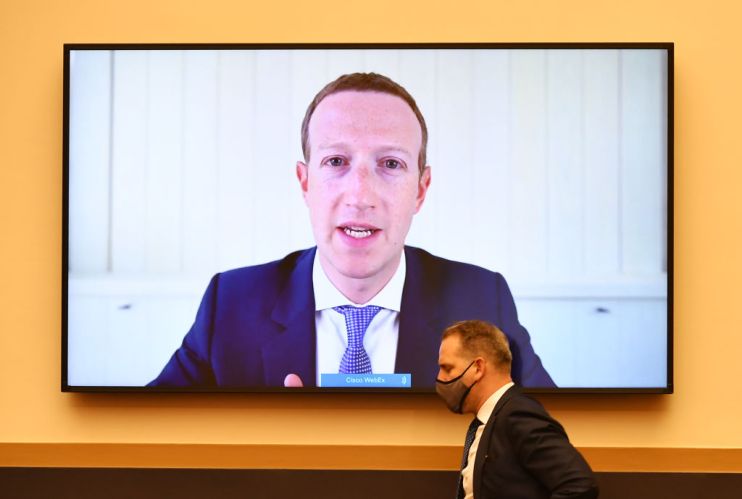Facebook’s antitrust victory could be the inspiration Joe Biden needs to serve Big Tech a fatal blow

When Charles Dickens’s Mr Bumble is confronted with the assumption that his overbearing wife “acts under his direction,” he responds with an argument for the ages: “If the law supposes that… the law is an ass.” Though Bumble’s argument might hold little water in a court of law, it isn’t an altogether bad one. It could, in fact, be the one that breaks up Facebook.
In December last year, the US Federal Trade Commission (FTC) brought an antitrust case against Facebook, claiming the social media giant has built and is exploiting a monopoly. A similar case was brought simultaneously by a clutch of state-level attorneys general. Before each could have their day in court, however, the law threw a spanner in the works. On Monday, Judge James Boasberg of the Federal District Court in Washington DC threw both cases out of court.
Facebook’s investors reacted with understandable joy. The share price lept by 4 percent in a day, lifting the company’s market capitalisation above $1tn for the very first time. But it is the response of US lawmakers that we should really be watching. Amy Klobuchar, Senator for Minnesota, spoke for many on both sides of the aisle. The ruling, she tweeted, “shows why our antitrust laws need to be updated after years of bad precedent.”
There can be little doubt that Judge Boasberg was on firm ground in tossing the case out of his courtroom on the law as it stands. His judgement of the strength of the legal arguments was damning. The regulator’s suit was, in his view, “legally insufficient”: it failed to satisfactorily define the market that Facebook has a monopoly over, the precise share of that market it has, and that it was using that share to exert monopolistic control. “It is almost as if the agency expects the court to simply nod to the conventional wisdom that Facebook is a monopolist,” he wrote witheringly.
But if Boasberg’s judgement exposed the poor legal handiwork of the FTC’s lawyers, it also exposed the insufficiency of US competition law as it stands. The world changes faster than laws do, and nowhere is this more obvious than in regulating Big Tech.
Historically, regulators show that a company is abusing its power by raising prices for customers who have nowhere else to go. But a new generation of academic thought argues that Tech companies must be treated differently. Though they may not extract their rents from us in dollars and cents, the argument goes, they do so indirectly. They buy up would-be competitors, for instance, reducing our choice. Or they force us to hand over still more of our personal data – the real commodity their businesses are built upon.
Whether this analysis is right or wrong may be academic. What is important is that this new generation has the ears of those who matter most. Joe Biden’s White House is stuffed full of Big Tech dissidents. Tim Wu, a noted critic of Big Tech’s anti-competitive practices, is on the President’s National Economic Council, Special Assistant for Technology and Competition Policy. Lina Khan, the author of a groundbreaking paper on Amazon and antitrust, is the Chair of the FTC. And now the legislative wheels are turning too. A few days ago, the House Judiciary Committee approved six new bills that target Tech. The momentum to break up big tech is gathering pace.
The withering judgement of Judge Boasberg may at first appear to push against that tide, but there is good cause to think it will do the opposite. Lawmaking in America is usually sclerotic, but Big Tech has the dubious honour of being opposed by those on both left and right. Boasberg’s judgement has reminded lawmakers of the limitations of the laws as they stand. When lawmakers think laws are an ass, expect them to change.